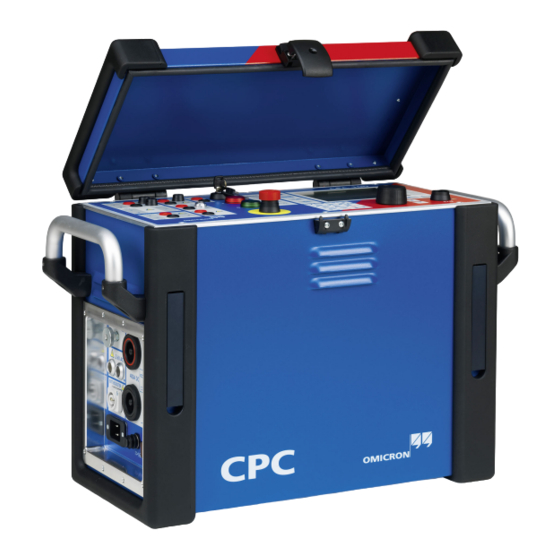
Omicron CPC 100 Getting Started
Hide thumbs
Also See for CPC 100:
- Reference manual (382 pages) ,
- User manual (78 pages) ,
- User manual (78 pages)
Table of Contents
Advertisement
Advertisement
Table of Contents

















Need help?
Do you have a question about the CPC 100 and is the answer not in the manual?
Questions and answers